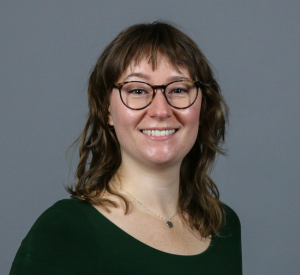Provide Feedback for the Department
The Department of Physical Therapy is interested in your feedback. If you have a comment, suggestion or concern that you would like to share with us, please use this anonymous form to submit. The Department will thoroughly review this information as part of its quality improvement process.
Curriculum
This post-professional graduate plan of study enables physical therapists to improve their clinical knowledge and clinical skills through a specific program of advanced physical therapy practice and scholarship. The program’s plan of study is designed to provide advanced clinical skills and knowledge to practicing physical therapists who want to update their clinical skills using evidence-based principles in clinical decision making. In addition to coursework and laboratory sessions, students also participate in physical therapy clinical rounds which provide them with additional knowledge of advanced physical therapy practice.
A comprehensive examination sequence is required following completion of the core coursework.
Example Plan of Study
Fall Term
- Advanced Neuroscience
- Motor Learning and Control of Movement/Health Promotion
- Advanced Clinical Practice: The Lower Quarter
- Principles of Evidence-Based PT Practice
Spring Term
- Falls and Balance Dysfunction: Physical Therapy Management and Intervention
- Analysis of Neuromuscular Signs and Symptoms in Clinical Decision-making
- Advanced Clinical Practice: The Upper Quarter
- Physical Therapy Special Topics Seminar (Optional)
- Seminar in Neurological Physical Therapy
Summer Term
-
Concepts and Principles Related to Sensory Motor Control 1
- Evidence-Based Medical and Physical Therapy Interventions for Persons with Neuromuscular Disease
- Case Studies of Persons with Neuromuscular Disorders
- Clinical Rounds and Case Presentation
Examination and Testing Requirements
Throughout the plan of study, a series of written and/or oral-practical examinations are integrated within the formal course work. These examinations are used to determine mastery of the core elements of the curriculum.
The written examination will be at the levels of “application and analysis” and “synthesis and analysis” so as to gauge the student’s ability to utilize information in their clinical decision making.
The practical examinations will focus on the clinical application of therapeutic assessment and treatment techniques. Students will be expected to demonstrate appropriate patient handling, awareness of safety issues, application of technique and decision-making rationale at the level of an advanced clinician.
